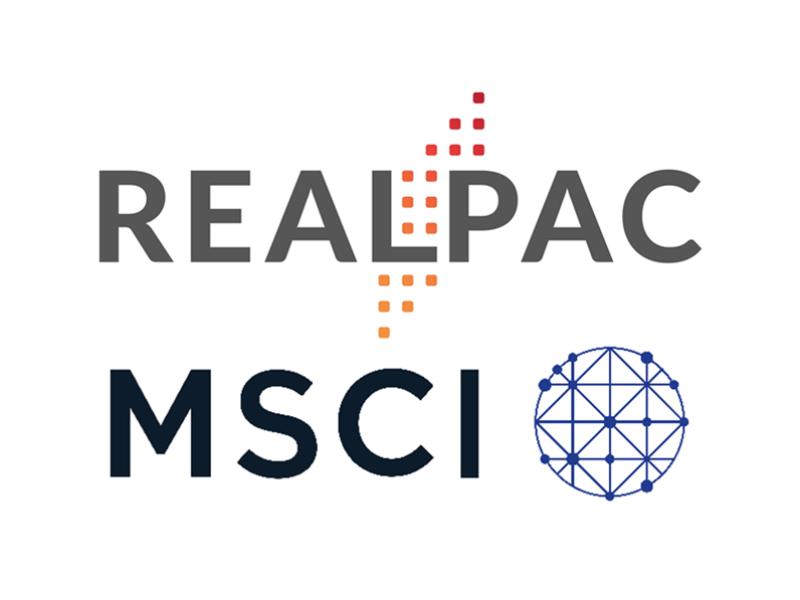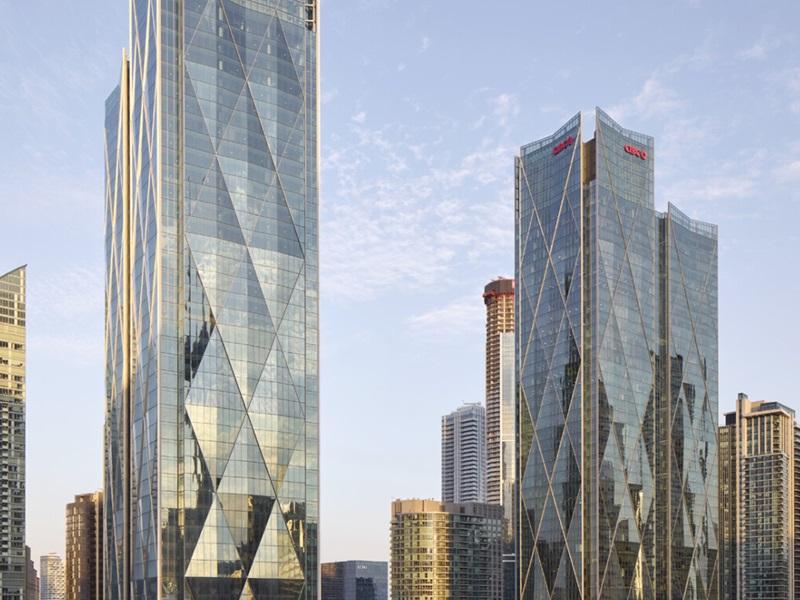
This year’s Global Property Market conference opened with presentations which looked both forward and back . . . reviewing the major trends of 2022 and offering an investment outlook for 2023.
Following are snapshots of what MSCI head of real estate economics Jim Costello and LaSalle Investment Management global strategist Jacques Gordon had to say during their talks at the Nov. 29 event at the Metro Toronto Convention Centre.
MSCI is a New York City-headquartered provider of decision support tools and services for the global investment community and Costello has 30 years of experience analyzing the relationships between real estate and economics.
LaSalle is a global real estate money manager with more than $81 billion in assets under management.
Gordon has been responsible for the macro strategy and micro research used to guide all investment decisions in 30 countries, but will soon take a new role as executive in residence at the Massachusetts Institute of Technology Center for Real Estate.
Jim Costello, MSCI
Costello said the real estate industry has enjoyed a period of tremendous returns globally and in Canada, but that dropped significantly in Q3 and major challenges remain ahead.
The global volume of real estate deals valued at more than $10 million is down from last year, when there was an enormous flow of capital into the sector. It is still, however, at an elevated level compared to historic deal flows.
“It was just a lot of folks hungry for yield in a period when interest rates were exceptionally low,” Costello said. “But as rates reset, there are going to be challenges for some of those investments.”
Many of the deals being done were larger as smaller assets that were traditionally purchased by investors with limited pools of capital behind them stopped moving earlier.
Liquidity fell in 97 of 155 global markets in the third quarter and Costello doesn’t see it picking up again for a while.
New York City was the most liquid market in the world from 2017 to 2020, but the Australian city of Sydney now holds that title.
Larger gaps have been created between buyer and seller price expectations. Costello said price corrections are needed to drive U.S office liquidity.
He believes sellers need to cut their price expectations by 15 per cent to get deals done and that number could increase.
Deal activity was down in Q3 in every asset class and the most popular markets have also changed.
Instead of traditional front-runners New York City and London, Los Angeles and Dallas have become the top global markets owing to their large number of logistics facilities and apartment buildings — two asset classes investors continue to chase.
Alternative real estate sectors — including self-storage, data centres, medical office, research and development, manufactured housing, student housing and seniors housing — have been gaining ground on more traditional asset classes.
Jacques Gordon, LaSalle Investment Management
Gordon said there were four inflection points affecting global economies and real estate in the transition from 2022 to 2023 and beyond. Things are moving:
• from interest rates being lower for longer to higher rates with a heavier drag on cash flows;
• from a COVID rebound to a global stall;
• from upward price pressure to downward price pressure; and
• from fossil fuel-driven economies to renewable energy-driven economies.
“Most of us are in private equity real estate,” Gordon said in talking about interest rates. “Whether we're debt or equity players, we're putting money to work for multiple years at a time.
“When you do that, you realize that we’re going to have to endure this period of, probably, 12 to 18 months of higher inflation and higher interest rates, but this too shall pass.”
Gordon said the COVID-19 pandemic “blasted a hole in the global economy” in 2020, but last year there was a “supercharged rebound with governments just blasting out surplus money.”
However, gross domestic product (GDP) numbers in countries around the world have been well below expectations in 2022.
Oxford Economics’ GDP forecasts for next year aren’t good, with several countries (including Canada) expected to have negative growth.
Real estate experienced major upward price pressure through 2021 and the first part of 2022, but now investors are having to deal with downward price pressure and declining transaction volumes in the sector.
Gordon said the depth of buyer pools has retreated across property types and, although deals can still get done, there are fewer bids for properties and sellers often don’t want to accept them.
Office vacancy rates are on the rise. JLL figures show a global vacancy rate of 14.5 per cent, with Europe at 7.2 per cent, Asia Pacific at 14.1 per cent and the U.S. at 19.1 per cent in the third quarter.
Coal, oil and gas comprise 77 per cent of the global primary energy mix, but Gordon said the future of energy looks nothing like its past.
He believes it’s going to take a lot of hard work to reduce the reliance on fossil fuels and shift toward more environmentally friendly energy.
“We in this room can commit to a net-zero-carbon world, but we need the rest of the world to come with us,” Gordon said. “Otherwise, we won't get there.”










